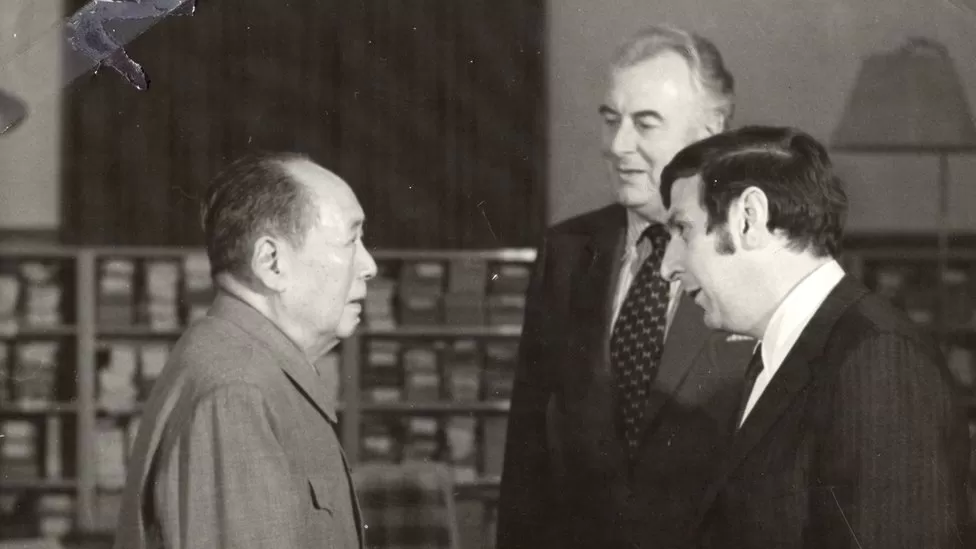The trip that transformed Australia and China ties

In 1971, a young Australian researcher received a phone call that changed his life during a late-morning drink at a Canberra pub.
“Is there anyone here named Stephen FitzGerald?” the pub asked.
There was a chance that Gough Whitlam, the future prime minister of Australia, might be on the line.
Former opposition leader Whitlam asked the China expert to join him on a historic diplomatic mission.
Dr FitzGerald answered, “Of course!”.
He then asked, “Would you mind travelling economy class?” with his inimitable wisdom.”
The emergence of diplomatic ties between Australia and China would be made possible by that moment. The 21st of December 1972 marked 50 years since that accomplishment.
Mr Whitlam made a risky political move by traveling.
During the Cold War, the Chinese Communist Party (CCP) was seeking improved foreign relations and a seat at the United Nations in 1971.
Nevertheless, key players, such as the US, refused to recognize the CCP as the legitimate government of China.
In this regard, Australia was one of the nations. FitzGerald says China remains a deeply divisive issue in the United States.
In those days, just 3% of the population was born outside of Australia or Europe, and many people were suspicious of other cultures. There was also a great deal of concern about the “red menace” of communism. Concerns over China intersected with these fears.
The threat posed by China’s “downward thrust” resonated for many when Australia’s conservative government spoke of it, FitzGerald says. The idea of Australia being taken over by Chinese, and not just Chinese, but Communist Chinese, was easy to imagine.
